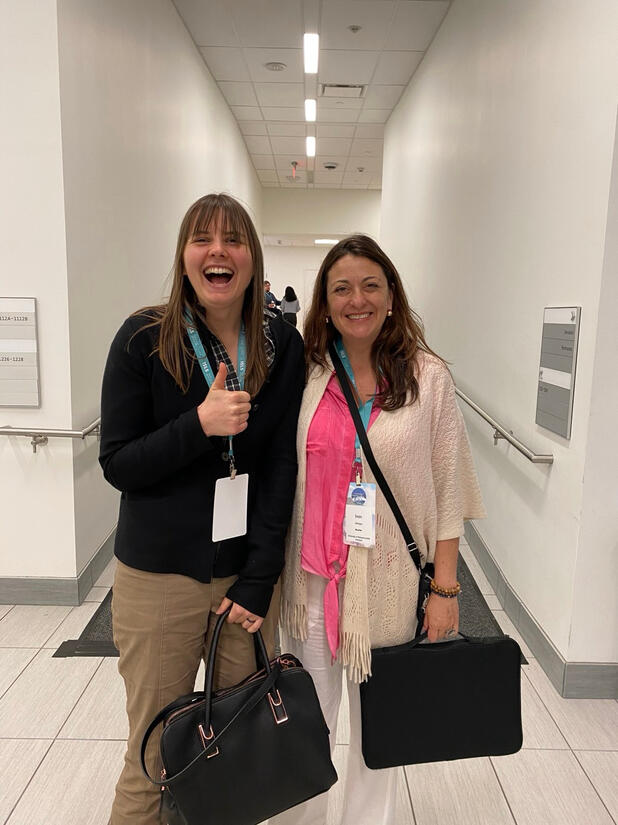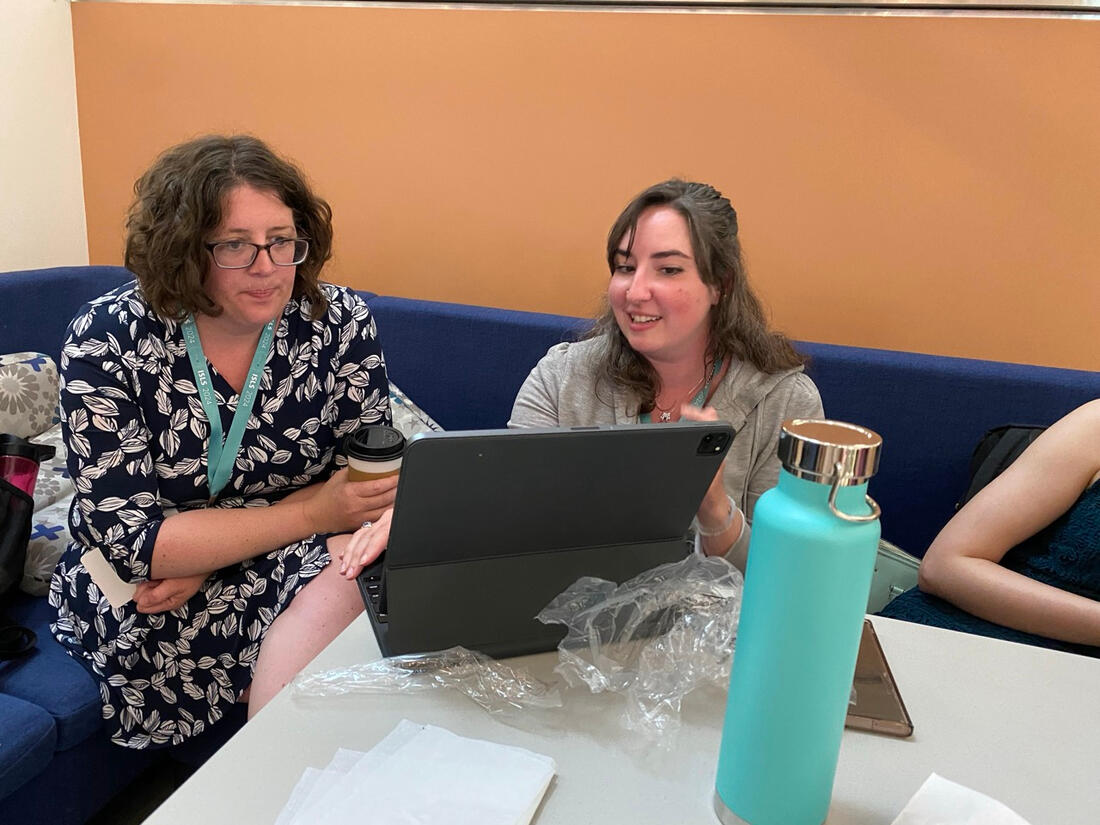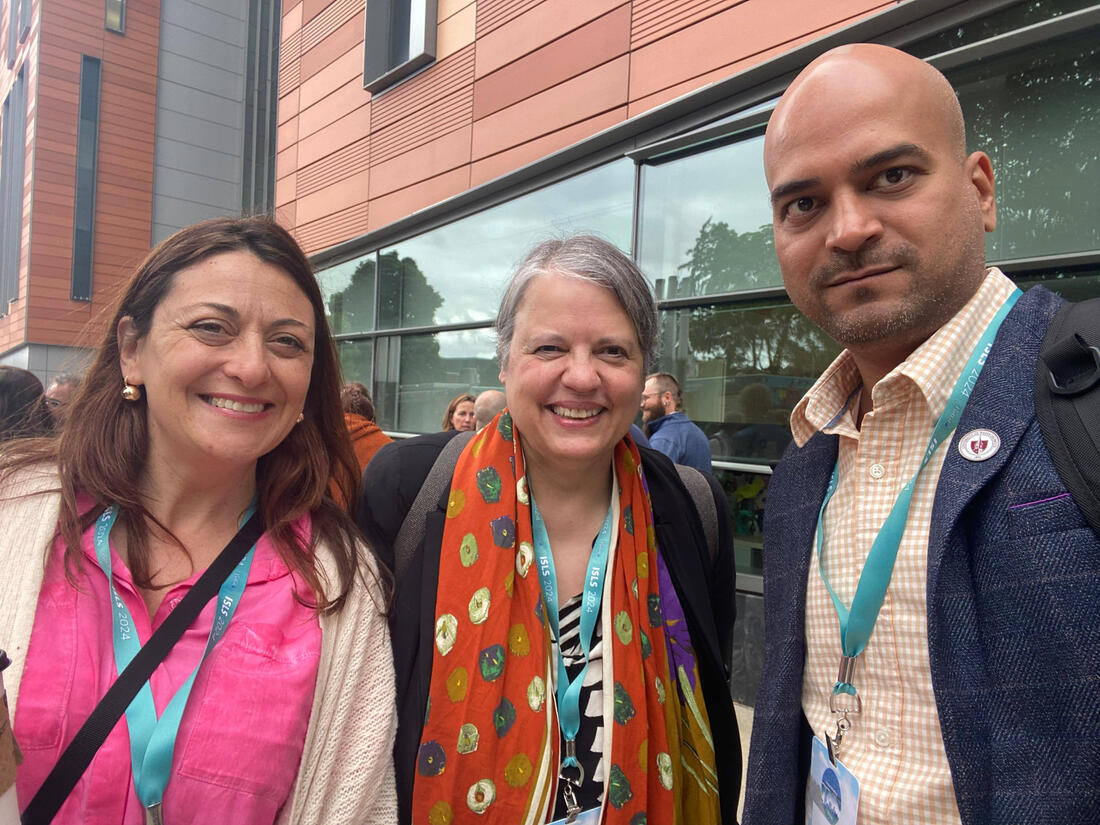Advanced Learning Technologies Lab
Grow and help others grow, with and around technology + AI
Our Mission

Personalized Learning through AI
Technologies that have the capability to allow learners to follow multiple trajectories through their learning experience, depending on abilities and preferences.
Are you a MathSpring user? Login here↗
Affect and Motivation
We study how to assess students’ affective states as they learn, and how to bring students back to optimal affective and motivational states for learning through a variety of Interventions.
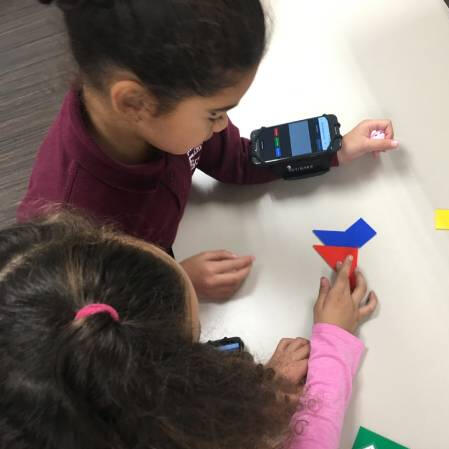
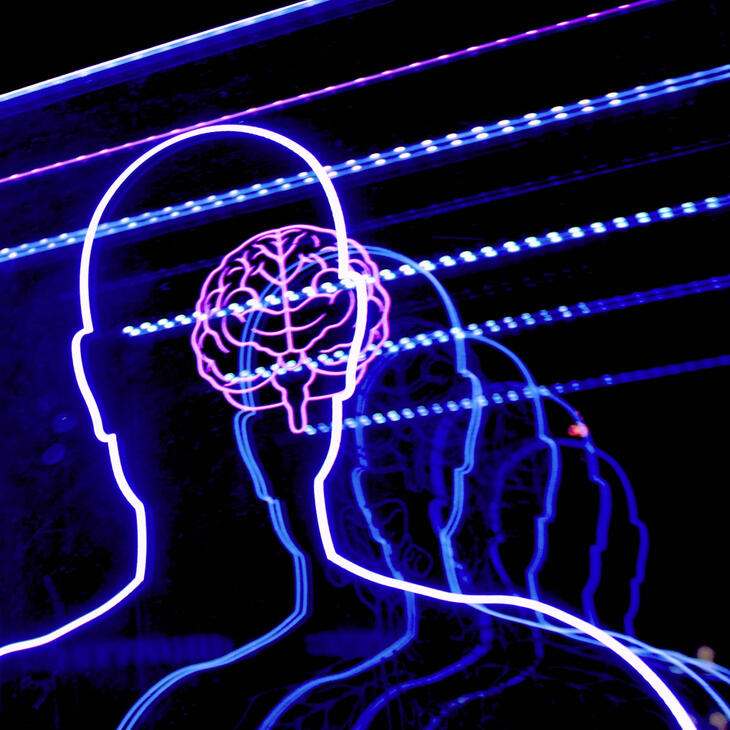
Metacognition
We investigate how to promote good study habits as students learn, by helping them set goals, be strategic while performing an activity, seek for help, and reflect about their performance by self-monitoring and self-evaluating their progress.
Active Physical Learning
We investigate how children can learn mathematics while exploring the physical space, getting a different understanding of math learning by gesturing, and using technology to guide them through 3D spaces.
Learn more about WearableLearning ↗
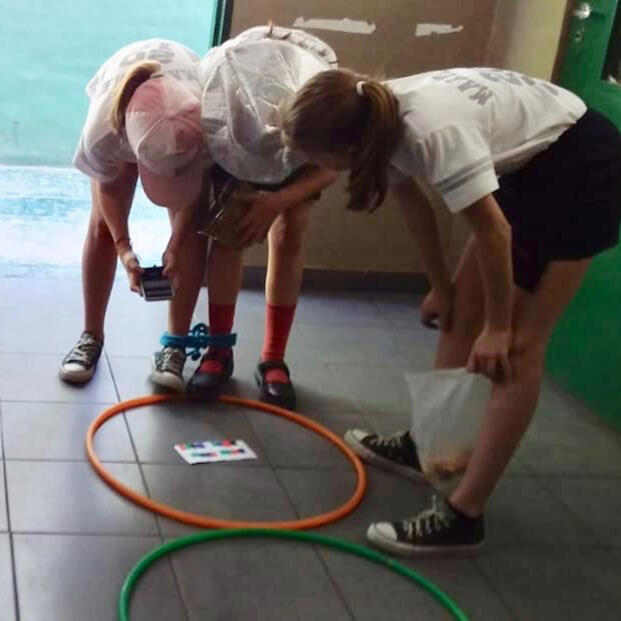

Intelligent Pedagogical Agents
We study how embodied characters, or learning companions, can bond with the students to deliver messages that promote motivation and develop self-regulation.
Educational Games
We investigate how Games and Game-Like Elements can promote learning and motivation, and afford a better relationship to STEM.

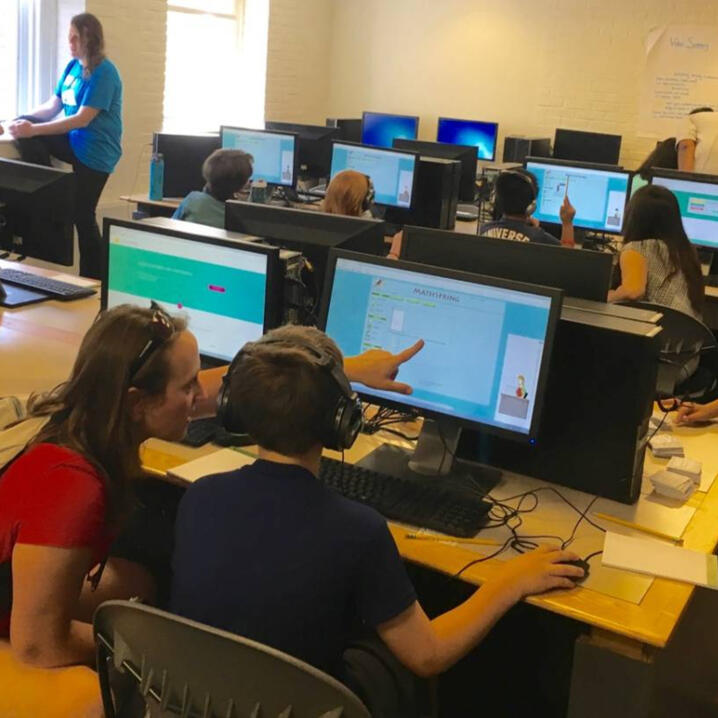
Open-Tutor Platforms
We are making Tutoring Systems and Learning Environments connect with each other through Application Protocol Interfaces (APIs). MathBuds is the result of making the ASSISTments and MathSpring tutoring systems use each other, in order to make a better final product to teach middle school mathematics, capitalizing on the strengths of each other.
Learning Technologies for the Developing World
We are interested in Socio-Cultural Differences and how to create low-cost devices that could be immersed in developing countries and bring learning technologies to those in most need.


Learning Disabilities
We study how to tailor learning technologies to those who struggle most and need furthest assistance, with a cognitive psychology perspective that focuses on memory retrieval, executive functioning, and personalized learning.
News
ALT Lab / News
Latest news, announcements, and awards
December 2025
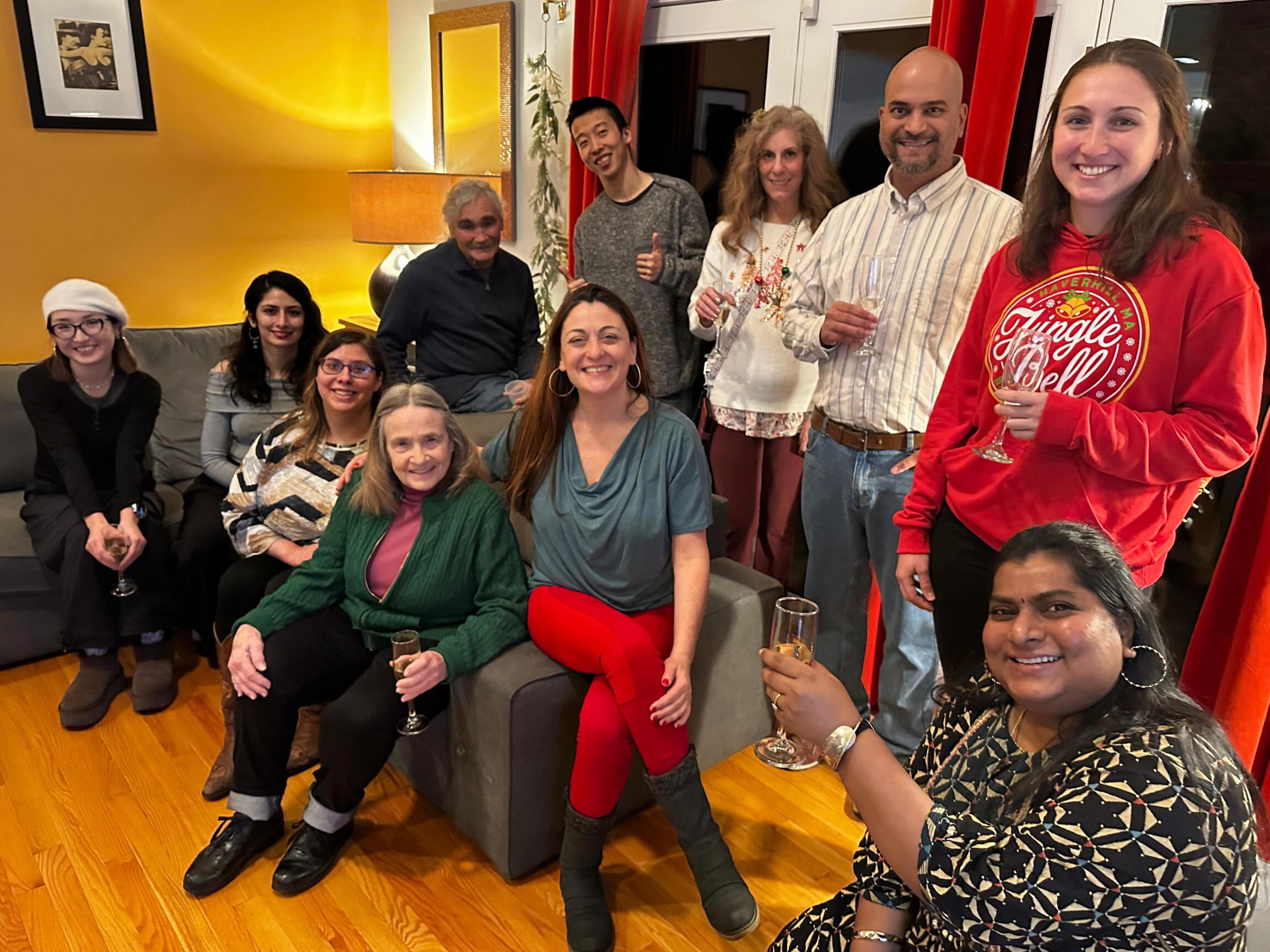
ALT Lab Scholars Mark a Year of Scientific Progress and Collaboration
In December 2025, members of the Advanced Learning Technologies (ALT) Lab convened for a year-end gathering hosted by our advisor, Ivon Arroyo, to reflect on a productive year of research and collaboration. The gathering served as both a scholarly reflection point and a community practice within the lab’s research cycle, highlighting work spanning peer-reviewed publications, funded research initiatives, international collaborations, and student-led inquiry.As the year came to a close, lab members exchanged insights from ongoing and completed projects, celebrated milestones across conferences and partnerships, and reinforced the collaborative relationships that underpin learning sciences–grounded research in educational technology and AI-supported learning systems. Looking ahead to 2026, the ALT Lab continues to pursue theoretically grounded, methodologically rigorous, and socially impactful research while fostering a research community rooted in mentorship, innovation, and shared scientific purpose.
November 2025
Computational Thinking Education in Tibetan Schools in India
The Advanced Learning Technologies Lab is pleased to share the successful implementation of a three-day computational thinking and mathematics program conducted in March–April 2025 across three Tibetan Children’s Village (TCV) schools in India: Upper TCV, TCV Gopalpur, and TCV Selakui. Led by WearableLearning graduate Dekey Palmo and Tenzin Paljor, this initiative introduced ninth-grade students to game-based math learning, embodied activities, and finite-state-machine–based game design.The project documented strong student engagement and highlighted the cultural resonance of identity-based game design for Tibetan learners. The team gathered classroom observations, student feedback, and demographic data to guide future scaling efforts. This work demonstrates the promise of adapting Wearable Learning for low-resource educational settings and the importance of community-driven computing education initiatives.The full report, Enhancing Computational Thinking and Mathematical Engagement through Wearable Learning in Tibetan Schools, is available in this project as an openly accessible resource here: osf.io/8zc3h/files/7m8gj
August 2025
Remembering Professor Margrit Betke

Image source: Boston University
The ALT Lab joins the computing and education research communities in mourning the passing of Professor Margrit Betke of Boston University. A pioneering scholar in computer vision and artificial intelligence, she dedicated her career to using technology for human flourishing—from assistive tools like Camera Mouse to cross-disciplinary AI for learning, healthcare, and conservation. Beyond her remarkable research contributions, she will be remembered as a generous mentor whose kindness, vision, and unwavering support shaped the lives of countless students and colleagues. Her legacy continues to inspire us to pursue technology that uplifts people and communities.
July 2025
ALT Lab Faculty and PhD Candidates Present at AIED 2025 in Palermo, Italy
Members of the Advanced Learning Technologies Lab, including faculty member Dr. Ivon Arroyo and PhD candidates Allison Poh and Will Lee, proudly represented the lab at the 26th International Conference on Artificial Intelligence in Education (AIED 2025) in Palermo, Italy. The team showcased their latest research in educational technology, intelligent systems, and the integration of AI into learning environments. Dr. Sai Gattupalli served as Session Chair for the conference’s online LLM Track, helping to facilitate remote presentations and discussions.Their presentations at AIED 2025 highlight the lab’s commitment to advancing innovation in AI-driven education and their active engagement in the international research community. Congratulations!
June 2025
Sai Gattupalli Earns PhD in Math, Science, and Learning Technologies
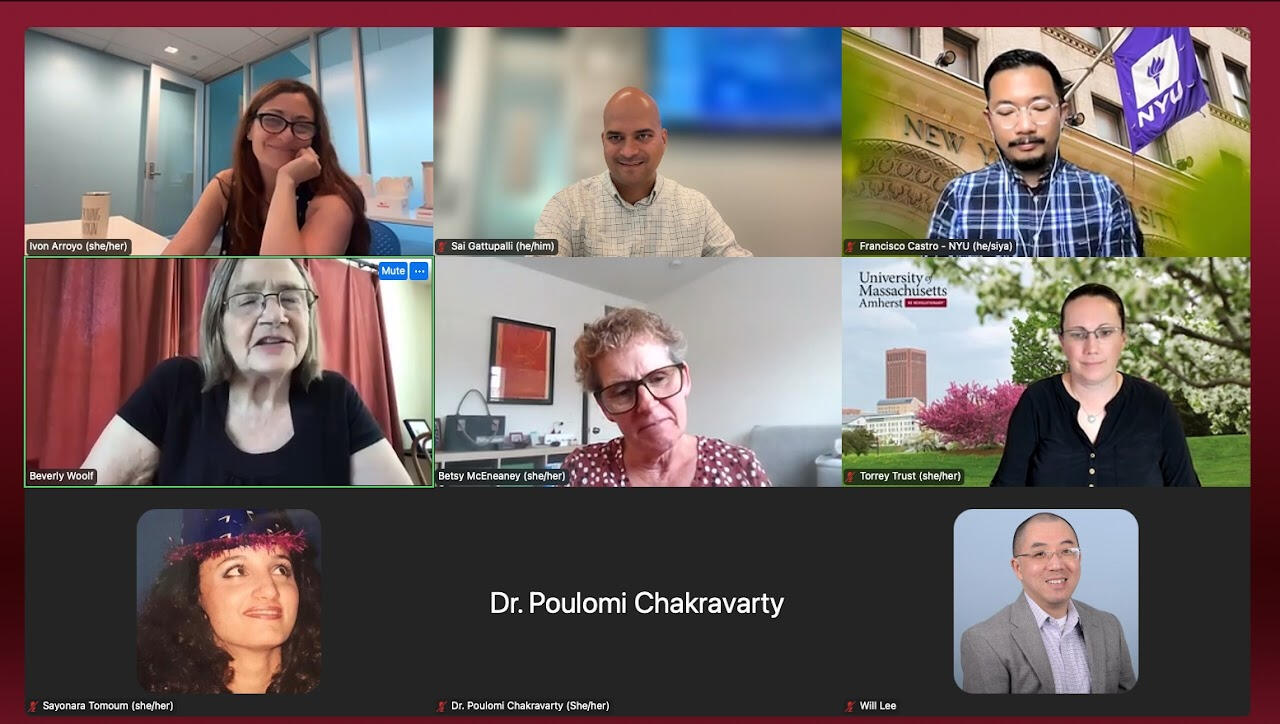
Congratulations to Sai Gattupalli, who has successfully earned a PhD in Education Technology with a focus on computing education technology, and cultural studies from the University of Massachusetts Amherst. Dr. Gattupalli’s work bridges technology, cultural perspectives, and innovative pedagogy, empowering learners and educators worldwide. The ALT Lab celebrates Dr. Gattupalli’s achievements and his ongoing commitment to advancing learning technologies.
March 2025
ALT Researcher Sai Gattupalli Creates STEM Music Videos with AI
Sai Gattupalli designs educational music videos using multimodal generative AI to support young learners, STEM teachers, and music educators with engaging, accessible science and math content. Check out Equations and Echoes Youtube Kids channel.
December 2024
ALT Lab Scholars Celebrate 2024 Achievements with Year-End Gathering
The Advanced Learning Technologies Lab gathered at the home of our advisor, Dr. Ivon Arroyo, to celebrate the scientific achievements of 2024. This potluck event provided an opportunity to reflect on the year’s research milestones, exchange ideas, and reinforce the collaborative spirit that drives innovation in learning sciences and educational technology. As we look ahead to 2025, we remain dedicated to advancing impactful scholarship and pioneering new frontiers in educational research.
December 2024
Krishna Kathala Earns PhD from the ALT Lab
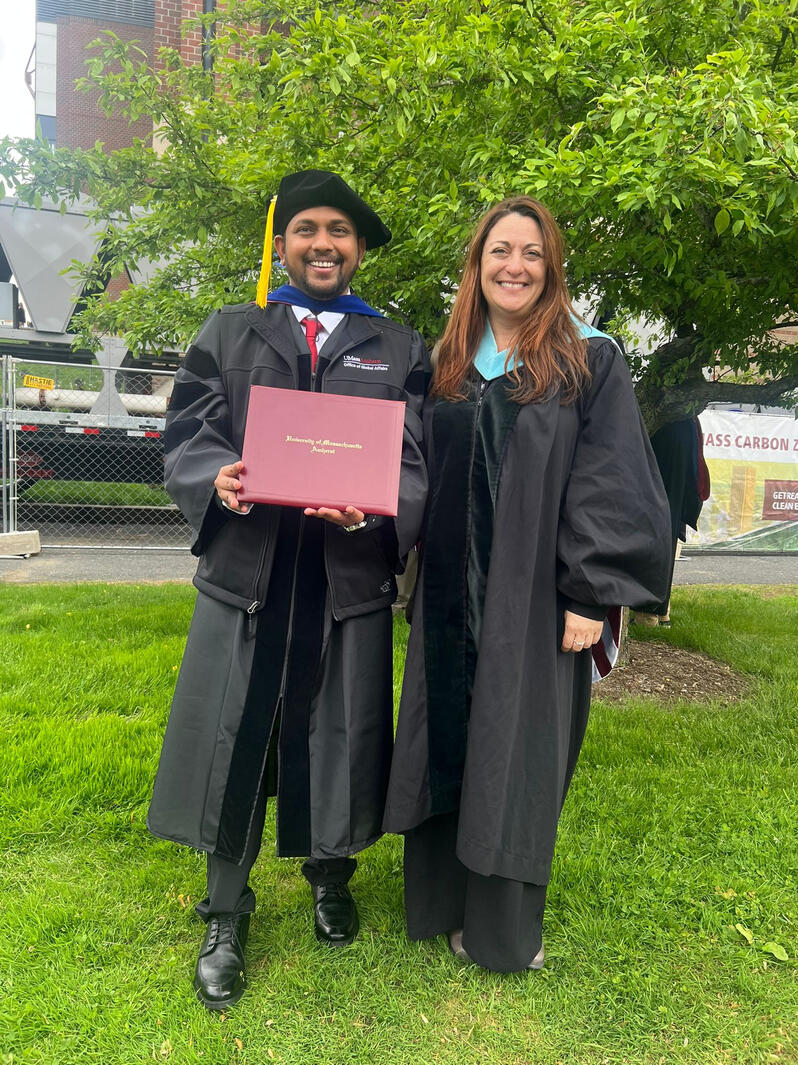
Congratulations to Krishna Kathala, the newest PhD graduate from the ALT Lab. Dr. Kathala's research has significantly advanced the understanding of intelligent tutoring systems and their applications in K-12 education. The ALT Lab celebrates his achievements and looks forward to his continued contributions to the field.
November 2024
High School Students Shine in WearableLearning Computing Program
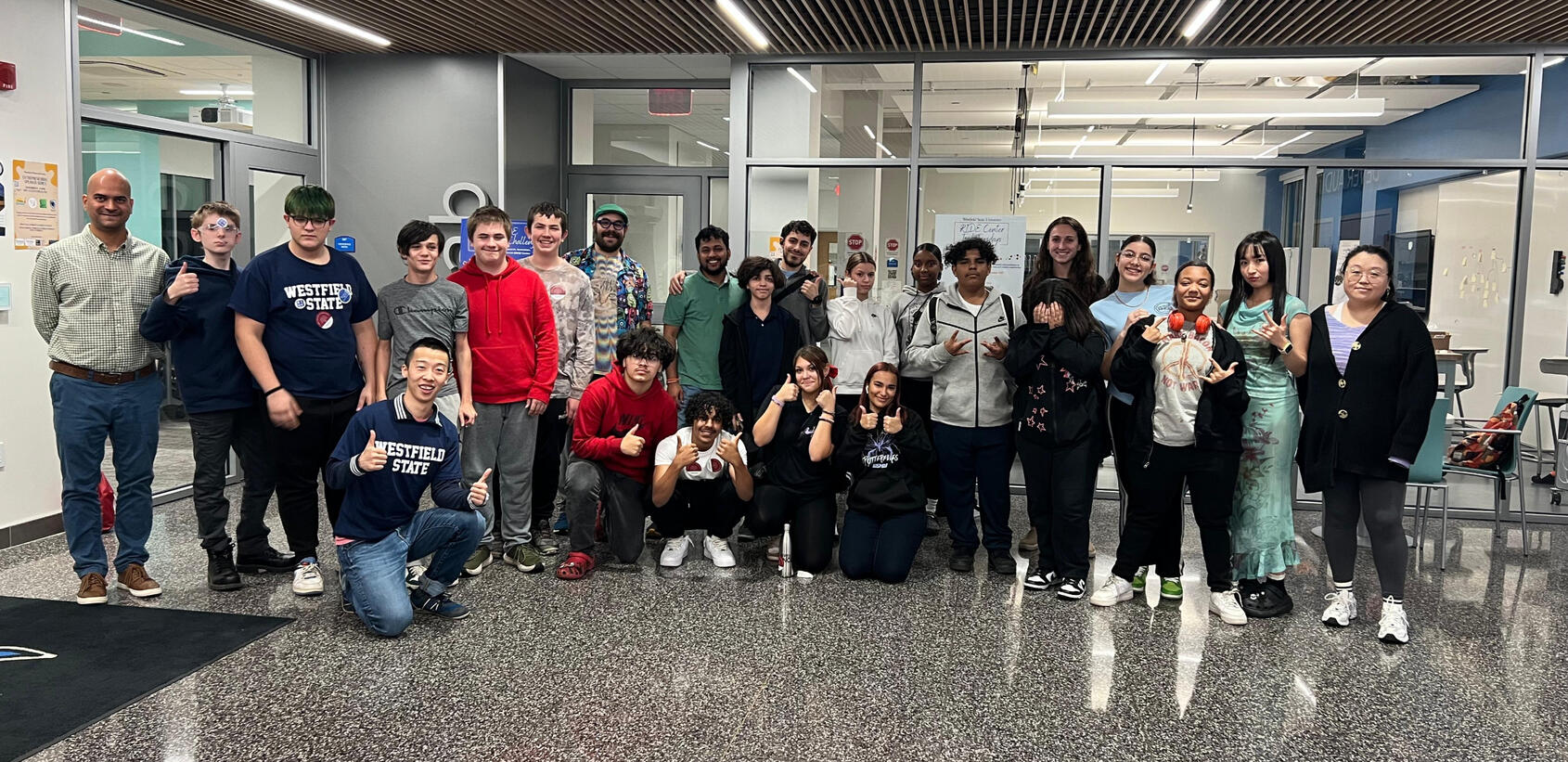
Congratulations to the high school students who participated in the WearableLearning Computing Curriculum program held at Westfield State University. Their enthusiasm, creativity, and commitment to exploring computational thinking and active learning were truly inspiring. The ALT Lab applauds their efforts and looks forward to seeing their continued success in STEM fields.
October 2024
Gattupalli Presents On-Device AI Poster at MassCUE Fall Conference
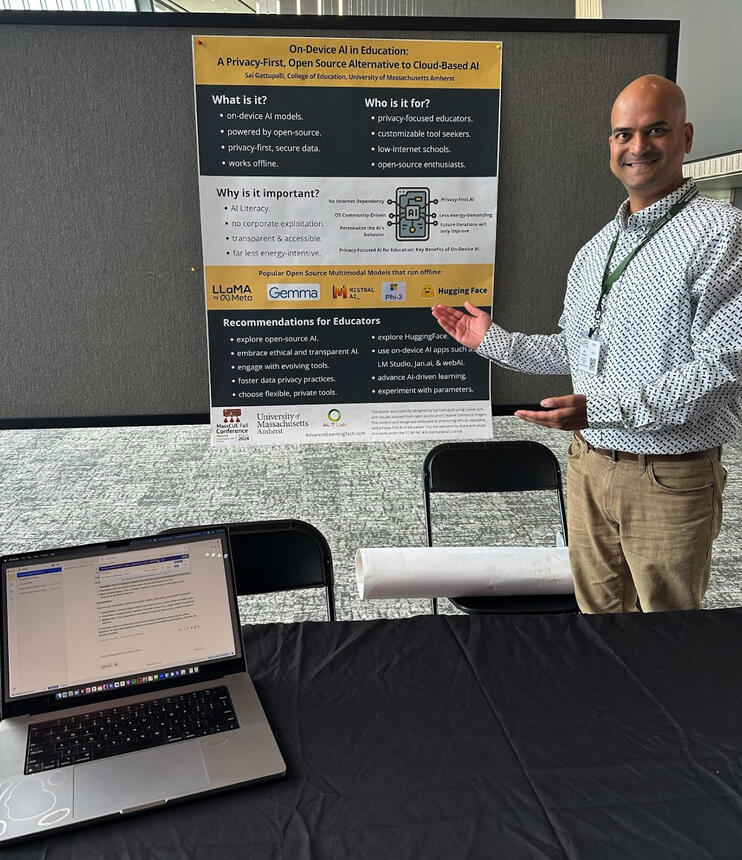
Sai Gattupalli presented a groundbreaking poster on On-Device AI in Education at the MassCUE Fall Conference 2024. This presentation highlighted privacy-first, open-source alternatives to cloud-based AI tools, emphasizing their potential for enhancing educational technology while safeguarding user data. The ALT Lab is proud to support innovative research that bridges technology and education. To view the full poster, visit https://doi.org/10.7275/g6qd-km54.
August 2024
Massenberg and Upward Bound Students Excel in WearableLearning Computing Education Summer Camp

Congratulations to the participants from the Massenberg and Upward Bound programs for successfully completing the WearableLearning Computing Education Summer Camp at UMass Amherst. This program provided students with hands-on experience in computational thinking, active learning, and embodied game design. Their innovative projects showcased their creativity and potential in STEM.Image credits: The Massenberg Summer STEM Institute at UMass Amherst
June 2024
ALT Lab PhD Students Present at ISLS 2024 Conference
Congratulations to the ALT Lab PhD students for showcasing their innovative research at the International Society of the Learning Sciences (ISLS) 2024 Conference at the University at Buffalo, NY. Their presentations highlighted groundbreaking work in learning technologies, computational thinking, and embodied education. The ALT Lab celebrates their contributions to advancing the field and inspiring future research.
June, 2024
Gattupalli Launches The Culture Compute Podcast from the ALT Lab
The ALT Lab congratulates Sai Gattupalli on the launch of the Culture Compute Podcast. This podcast explores the dynamic intersection of culture, technology, and education, decoding the future of learning in the digital age. Featuring episodes on hybrid intelligence, ethics, and the responsible use of AI in education, the podcast offers actionable insights to educators, researchers, and technologists. Learn more and listen to episodes on the CultureComputePod.com
April, 2023
Arroyo recognized with two distinguished awards: the PIT Fellowship and the IDS Seed Award.
The PIT Fellowship supports Arroyo's project on bilingual personalized digital tutors for mathematics learning, making the MathSpring online multimedia K-12 math tutoring platform more accessible to bilingual Latinx students. By offering MathSpring for free to Hispanic students in Holyoke, MA, the project aims to engage more Latinx students in STEM and improve their math and language skills. More information on the PIT Fellowship can be found here↗.The IDS Seed Award funds Arroyo's collaborative research with Beverly Woolf↗ and Marialuisa Di Stefano↗ on the development and testing of a new bilingual tutoring software that uses Latinx digital avatars. This innovative project focuses on addressing the needs of bilingual (Spanish and English) students, with personalized Hispanic digital avatars in early education and computer science. More information about the IDS Seed Award can be found here↗.
October, 2022
Brain, Body, World
Ivon Arroyo and her team innovate ways to support teachers and students using embodied learning, AI, and game design. Their work has been showcased on the University of Massachusetts Amherst Research News.
April, 2020
CAREER: Wearable Tutors in the Embodied Mathematics Classroom
Investigator:
Ivon Arroyo (Principal Investigator)
Read more on NSF.gov↗.
June, 2019
IES: An Efficacy Study of the MathSpring Personalized Learning System That Responds to Student Affect (with WestEd)
Investigators:
Steven Schneider
Beverly Woolf
Ivon Arroyo
Read more here↗.
Developing Computational Thinking by Creating Multi-player Physically Active Math Games
Investigator(s):
Ivon Arroyo (Principal Investigator)
Gillian Smith (Co-Principal Investigator)
Erin Ottmar (Co-Principal Investigator)
Read more here↗.
INT: Collaborative Research: Detecting, Predicting and Remediating Student Affect and Grit Using Computer Vision
Investigators:
Ivon Arroyo (Principal Investigator)
Jacob Whitehill (Co-Principal Investigator)
Beverly Woolf (Co-Principal Investigator)
Read more here↗.
BD Spokes: Spoke: NORTHEAST: Collaborative: Grand Challenges for Data-Driven Education
Investigators:
Ivon Arroyo (Principal Investigator)
Neil Heffernan (Co-Principal Investigator)
Beverly Woolf (Co-Principal Investigator)
Read more here↗.
View all past awards on NSF.gov↗
Students and Staff
ALT Lab / Students and Staff
Meet our staff
Current students
Alumni
Faculty
ALT Lab / Faculty
Meet the faculty
A true hybrid across disciplines, Ivon Arroyo specializes in learning sciences, computer science, and educational/cognitive psychology. Her expertise is in the design of novel technologies for learning and assessment for K-12 students studying mathematics.Arroyo's team creates adaptive personalized learning technologies that automatically assess students' math changing abilities, affective states and metacognitive states, respond to students on the spot, and report strengths and weaknesses to the teacher--in real time, as students are working on computers or mobile devices.Her group also works on wearable learning and computational thinking, including the use of mobile electronic devices for students to design, develop and play multiplayer physically active embodied math games.Professor Arroyo enjoys teaching at the graduate and undergraduate level because of the opportunity to impart knowledge and skills to students, as well as the opportunity to mentor a new generation of learning scientists that have dual strengths in computation and core learning sciences--allowing for an invaluable combination of technological innovation with theoretical knowledge of how people learn.
Background and Profile
Ed.D. in Math and Science Education
University of Massachusetts AmherstM.S. in Computer Science
University of Massachusetts AmherstB.S. in Computer Science
(Licenciatura en Informática)
Universidad Blas Pascal, Cordoba, Argentina
Beverly Park Woolf PhD is a Research Professor in the Computer Science Department of the University of Massachusetts Amherst. She is the Director of the Center for Knowledge Communication. Many of the three-dimensional graphics and multimedia classes at the University of Massachusetts owe their beginning to Dr. Woolf's efforts to offer students the opportunity to expand both intellectual and practical skills.Dr. Woolf's research focuses on building systems to train, explain, and advise users effectively. Extended multimedia capabilities are integrated with knowledge about the user, domain, and dialogue to produce real-time performance support and on-demand advisory and tutoring systems. The tutoring systems use intelligent interfaces, inferencing mechanisms, cognitive models, and modifiable software to improve a computer's communicative abilities. These systems have been tested with learners, trainers, and other client bases, deployed in education and industry and demonstrated in more than 50 American industrial, military and academic sites and 15 foreign countries.Her most recent book is Building Intelligent Interactive Tutors, Student-Centered Strategies for Revolutionizing E-Learning, Published by Elsevier & Morgan Kaufmann, 2008.
Neena Thota is Senior Teaching Faculty at the Manning College of Information and Computer Sciences at the University of Massachusetts Amherst. Her research interests are in Computing Education Research, Educational Technologies, Learning and Assessment Taxonomies, and Methodological Frameworks for Research.Dr. Thota is Co-PI for the NSF supported project for Computational Thinking Funds of Knowledge: A Culturally-Relevant Assessment for Early Elementary Students Children. The project is developing equitable computational thinking (CT) assessments for historically marginalized Black and Hispanic students in the early grades. She is also Co-PI for the NSF supported CyberTraining workshops for the Center for Parallel and Distributed Computing Curriculum Development and Educational Resources PDC Curriculum Early Adopter Grant and Summer Training Program, that prepare instructors to offer experimental courses with an updated Parallel and Distributed Curriculum.She is the director of the Early Research Scholar Program at CICS that provides a structured and scalable research experience for undergraduate students. In her role as Sloan Faculty Fellow, she participates in the Sloan Student Fellows Program - a research mentoring program welcoming Black, Latine/Hispanic, and Indigenous (BLI) undergraduate students.Contact her if you are interested in pursing Independent Studies or Honors Thesis projects.
Danielle Allessio, PhD (She/Her) is a Lecturer and Program Coordinator for Learning, Media, and Technology at the University of Massachusetts Amherst. She conducts research at the Manning College of Information and Computer Sciences, specializing in educational technology and intelligent tutoring systems that adapt to students’ math skills, affective states, and metacognitive processes. Dr. Allessio designs novel learning and assessment technologies for K-12 students, leads recruitment and professional development initiatives, manages content development, and oversees undergraduate and graduate student researchers. She also plays a key role in bringing these tutoring technologies into schools to enhance student learning experiences.
Publications
ALT Lab / Publications
Our most recent work
This section was last updated in October, 2025.
Gattupalli, S., Arroyo, I., Woolf, B., & McEneaney, E. (2025, July). SHIELD-ing Education: On-Device AI for Equitable, Offline Computing Education. In 2025 IEEE International Conference on Advanced Learning Technologies (ICALT) (pp. 217-218). IEEE.
Kathala, K. C. R., Arroyo, I., & Earnest, D. (2025, August). The Role of Educational Technology in K-12 STEM: A Qualitative Multi-stakeholder Study on Technology Integration. In Proceedings of the International Conference on Technology 4 Education 2024, Volume 1 (Vol. 1, p. 16). Springer Nature.
Haiman, A., Arroyo, I., & McLaren, B. M. (2025, July). Comparing the Effectiveness of Digital Game-Based Learning and Embodied Learning. In International Conference on Artificial Intelligence in Education (pp. 409-414). Cham: Springer Nature Switzerland. https://doi.org/10.1007/978-3-031-99261-2_45
Lee, W., & Arroyo, I. (2025, July). Toward Extracting Computational Thinking Evidence with Large Language Models: Empowering K-12 Educators. In International Conference on Artificial Intelligence in Education (pp. 403-408). Cham: Springer Nature Switzerland. https://doi.org/10.1007/978-3-031-99261-2_44
Feng, M., Brezack, N., Huang, C., Schneider, M., Arroyo, I., Woolf, B., & Allessio, D. (2025, July). AI-Powered Math Learning: Evaluating the Impact of a Personalized Tutoring Platform that Responds to Affect. In International Conference on Artificial Intelligence in Education (pp. 118-125). Cham: Springer Nature Switzerland. https://doi.org/10.1007/978-3-031-99264-3_15
Poh, A., Shi, Y., Castro, F. E. V., & Arroyo, I. (2025, July). Enhancing Teacher Support in Learning Technologies: A Human-Centered Approach with WearableLearning. In International Conference on Artificial Intelligence in Education (pp. 53-60). Cham: Springer Nature Switzerland. https://doi.org/10.1007/978-3-031-99264-3_7
Hadi Nezhad, M., Castro, F. E. V., Mak, E., Haas, P. J., Allessio, D., Osterweil, L., Rasul, I., Heather Conboy, & Arroyo, I. (2025, July). Embedding Ethical Awareness in Computer Science and AI Education: The PEaRCE Approach to Responsible Computing. In International Conference on Artificial Intelligence in Education (pp. 135-149). Cham: Springer Nature Switzerland. https://doi.org/10.1007/978-3-031-98414-3_10
Zhang, B., & Arroyo, I. (2025). Improving Student Engagement with the MathSpring Intelligent Tutoring System: A Reinforcement Learning Approach. In EDULEARN25 Proceedings (pp. 9054-9063). IATED.
Stec, H., Richey, J. E., Nguyen, H., Else-Quest, N., Hammer, J., Baker, R. S., Arroyo, I., & McLaren, B. (2024). Using a Multi-Dimensional Model of Gender to Assess Learning with Different Game-Based Learning Narratives.
Hadi Nezhad, M., Castro, F., Woolf, B., & Arroyo, I. (2024, September). Math Teachers’ In-Class Information Needs and Usage for Effective Design of Classroom Orchestration Tools. In European Conference on Technology Enhanced Learning (pp. 299-314). Cham: Springer Nature Switzerland. https://doi.org/10.1007/978-3-031-72315-5_21.
Arroyo, I., Rasul, I., Crabtree, D., Castro, F., Poh, A., Gattupalli, S., Lee, W., & Micciolo, M. (2024, July). Aligning AIED Systems to Embodied Cognition and Learning Theories. In International Conference on Artificial Intelligence in Education (pp. 3-17). Cham: Springer Nature Switzerland. https://doi.org/10.1007/978-3-031-64315-6_1.
Kathala, K. C. R., Arroyo, I., & Mannuru, N. R. (2024, July). Role of Ethical and Responsible AI in Education for Next Generation Inventors. In International Conference on Artificial Intelligence in Education (pp. 71-78). Cham: Springer Nature Switzerland.https://doi.org/10.1007/978-3-031-64312-5_9.
Yu, H., Allessio, D. A., Rebelsky, W., Murray, T., Magee, J. J., Arroyo, I., Woolf, B.P., Bargal, S.A., & Betke, M. (2024, July). Affect Behavior Prediction: Using Transformers and Timing Information to Make Early Predictions of Student Exercise Outcome. In International Conference on Artificial Intelligence in Education (pp. 194-208). Cham: Springer Nature Switzerland. https://doi.org/10.1007/978-3-031-64299-9_14
Richey, J. E., Nguyen, H. A., Mehrvarz, M., Else-Quest, N., Arroyo, I., Baker, R. S., Stec, H., Hammer, J., & McLaren, B. M. (2024, July). Understanding gender effects in game-based learning: the role of self-explanation. In International Conference on Artificial Intelligence in Education (pp. 206-219). Cham: Springer Nature Switzerland. https://doi.org/10.1007/978-3-031-64302-6_15.
Crabtree, D., Rasul, I., & Arroyo, I. (2024). Implementing WearableLearning in the math classroom: an exploration into the affordances of embodied learning through game-play compared to traditional learning technologies. In Proceedings of the 18th International Conference of the Learning Sciences-ICLS 2024, pp. 530-537. International Society of the Learning Sciences. https://doi.org/10.22318/icls2024.614625.
Gattupalli, S., Castro, F. E. V. G., & Arroyo, I. (2024). Investigating Cultural Signatures in Game Designs of Middle School Students from Argentina, India, and the United States. In Proceedings of the 18th International Conference of the Learning Sciences-ICLS 2024, pp. 1518-1521. International Society of the Learning Sciences. https://doi.org/10.22318/icls2024.138871.
Arroyo, I., Closser, A. H., Castro, F., Smith, H., Ottmar, E., & Micciolo, M. (2023). The WearableLearning Platform: A Computational Thinking Tool Supporting Game Design and Active Play. Technology, Knowledge and Learning, 28(4), 1815-1824. https://doi.org/10.1007/s10758-022-09601-1.
Yu, H., Allessio, D. A., Lee, W., Rebelsky, W., Sylvia, F., Murray, T., Magee, J.T., Arroyo, I., Woolf, B.P., Bagal, S.A., & Betke, M. (2023, October). COVES: A Cognitive-Affective Deep Model that Personalizes Math Problem Difficulty in Real Time and Improves Student Engagement with an Online Tutor. In Proceedings of the 31st ACM International Conference on Multimedia (pp. 6152-6160). https://doi.org/10.1145/3581783.3613965.
Gattupalli, S., Chakravarty, P., Chakravarty, U., & Arroyo, I. (2023, July). WhatsApp Communities: Educational Use Cases. In 2023 IEEE International Conference on Advanced Learning Technologies (ICALT) (pp. 94-96). IEEE. https://doi.org/10.1109/ICALT58122.2023.00033.
Rasul, I., Castro, F., & Arroyo, I. (2023, May). Towards Embodied Wearable Intelligent Tutoring Systems. In International Conference on Intelligent Tutoring Systems (pp. 298-306). Cham: Springer Nature Switzerland. https://doi.org/10.1007/978-3-031-32883-1_26.
Arroyo, I., Porayska-Pomsta, K., & Muldner, K. (2023). Theories of affect, meta-affect, and affective pedagogy. In Handbook of Artificial Intelligence in Education (pp. 68-100). Edward Elgar Publishing. https://doi.org/10.4337/9781800375413.00014
Castro, F., Raipura, S., Conboy, H., Haas, P., Osterweil, L., & Arroyo, I. (2023, March). Piloting an Interactive Ethics and Responsible Computing Learning Environment in Undergraduate CS Courses. In Proceedings of the 54th ACM Technical Symposium on Computer Science Education V. 1 (pp. 659-665). https://dl.acm.org/doi/abs/10.1145/3545945.3569753
Arroyo, I. Euredjian, A., Perez-Lacera, L., Allessio, D., Woolf, B.P. (2023, April) Localizing a Mathematics Tutoring System to Spanish in Latin-America. In Proceedings of the International Conference on Information Technology & Systems. Cuzco, Peru. Rocha, A., Ferrás, C. and Ibarra, W., Eds. LNNS 691. Springer.
Rasul, I., Castro, F., & Arroyo, I. (2023, May). Towards Embodied Wearable Intelligent Tutoring Systems. Augmented Intelligence and Intelligent Tutoring Systems. Proceedings of the 19th International Conference, ITS 2023, Corfu, Greece, June 2–5, 2023, (pp. 298-306). Springer Cham. https://doi.org/10.1007/978-3-031-32883-1
Rasul. I., Crabtree, D., Castro, F., Poh, A., Gattupalli, S., Kathala, K., Arroyo, I. (2023) WearableLearning: Developing Computational Thinking through Modeling, Simulation and Computational Problem Solving. In Proceedings of the 17th International Conference of the Learning Sciences-ICLS 2023. International Society of the Learning Sciences.
Castro, F., Raipura, S., Conboy, H., Haas, P., Osterweil, L., & Arroyo, I. (2023, March). Piloting an Interactive Ethics and Responsible Computing Learning Environment in Undergraduate CS Courses. In Proceedings of the 54th ACM Technical Symposium on Computer Science Education V. 1 (pp. 659-665).
https://doi.org/10.1145/3545945.3569753
Woolf, B.P., Betke, M., Yu, H., Bargal, S.A., Arroyo, I., Magee, J., Allessio, D., Rebelsky, W. (2023) Face Readers: The Frontier of Computer Vision and Math Learning. In Proceedings of the Workshop “Towards the Future of AI-Augmented Human Tutoring in Math Learning”. In conjunction with the International Conference on Artificial Intelligence in Education 2023. Tokyo, Japan.
Gattupali, S., Lee, W., Allessio, D., Crabtree, D., Arroyo, I., Woolf, B.P. (2023) Exploring Pre-Service Teachers' Perceptions of Large Language Models-Generated Hints in Online Mathematics Learning. In Proceedings of the Workshop on Empowering Education with LLMs - the Next-Gen Interface and Content Generation. In conjunction with the International Conference on Artificial Intelligence in Education 2023. Tokyo, Japan.
Ruiz, N., Yu, H., Allessio, D. A., Jalal, M., Joshi, A., Murray, T., & Betke, M. (2022). ATL-BP: a student engagement dataset and model for affect transfer learning for behavior prediction. IEEE Transactions on Biometrics, Behavior, and Identity Science.
https://doi.org/10.1109/TBIOM.2022.3210479
Lee, W., Allessio, D., Rebelsky, W., Satish Gattupalli, S., Yu, H., Arroyo, I., ... & Woolf, B. P. (2022, June). Measurements and Interventions to Improve Student Engagement Through Facial Expression Recognition. In Adaptive Instructional Systems: 4th International Conference, AIS 2022, Held as Part of the 24th HCI International Conference, HCII 2022, Virtual Event, June 26–July 1, 2022, Proceedings (pp. 286-301). Cham: Springer International Publishing.
https://link.springer.com/chapter/10.1007/978-3-031-05887-5_20
Arroyo, I., Closser, A. H., Castro, F., Smith, H., Ottmar, E., & Micciolo, M. (2022). The WearableLearning Platform: A Computational Thinking Tool Supporting Game Design and Active Play. Technology, Knowledge and Learning, 1-10.
https://doi.org/10.1007/s10758-022-09601-1
Castro, F. (2022). Exploring the Use of Finite-State Machines and Game Creation to Teach Computational Thinking in Middle Schools. In Proceedings of the Innovation and Technology in Computer Science Education Conference. Dublin, Ireland (2022).
https://doi.org/10.1145/3502717.3532137
Gattupalli, S., Castro, F., Arroyo, I., Bogs, O., Seiche, G. (2022). Exploring Cross-cultural Differences in Educational Math Game Creation using the WearableLearning Platform. Proceedings of the International Conference of the Learning Sciences 2022.
https://osf.io/jdsnt
Arroyo, I., Closser, A. H., Castro, F., Smith, H., Ottmar, E., Micciolo, M. (2022) The Wearable Learning Platform: A Computational Thinking Tool Supporting Game Design and Active Play. Technology, Knowledge and Learning. Springer Nature.
https://link.springer.com/article/10.1007/s10758-022-09601-1
Closser, A. H., Erickson, J. A., Smith, H., Varatharaj, A., & Botelho, A. F. (2022). Blending learning analytics and embodied design to model students’ comprehension of measurement using their actions, speech, and gestures. International Journal of Child-Computer Interaction’s special issue on Learning Analytics and Embodied Design.
https://www.sciencedirect.com/science/article/pii/S2212868921000866
Arroyo, I., Castro, F., Smith, H., Harrison, A., Ottmar, E. (2021). Augmenting Embodied Mathematics Classrooms with Mobile Tutors. AERA 2021.
https://par.nsf.gov/biblio/10283183
Yu, H., Gupta, A., Lee, W., Arroyo, I., Betke, M., Allesio, D. & Woolf, B. P. (2021, July). Measuring and Integrating Facial Expressions and Head Pose as Indicators of Engagement and Affect in Tutoring Systems. In International Conference on Human-Computer Interaction (pp. 219-233). Springer, Cham.
https://www.doi.org/10.1007/978-3-030-77873-6_16
Gupta, A., Menon, N., Lee, W., Rebelsky, W., Allesio, D., Murray, T. & Arroyo, I. (2021, June). Affective Teacher Tools: Affective Class Report Card and Dashboard. In International Conference on Artificial Intelligence in Education (pp. 178-189). Springer, Cham.
https://www.doi.org/10.1007/978-3-030-78292-4_15
Arroyo, I. (2021, April). Augmenting Embodied Mathematics Classrooms with Mobile Tutors. In Annual meeting program American Educational Research Association.
Kooken, J. W., Zaini, R., & Arroyo, I. (2021). Simulating the dynamics of self-regulation, emotion, grit, and student performance in cyber-learning environments. Metacognition and Learning, 1-39.
https://doi.org/10.1007/s11409-020-09252-6
Smith, H., Closser, A. H., Ottmar, E., & Arroyo, I. (2020). Developing mathematics knowledge and computational thinking through game play and design: A professional development program. Contemporary Issues in Technology and Teacher Education, 20(4).
Ruiz, N., Jalal, M., Ablavsky, V., Allessio, D., Magee, J., Whitehill, J., Arroyo, I., Woolf, B., Sclaroff, S., & Betke, M. (2020). Leveraging Affect Transfer Learning for Behavior Prediction in an Intelligent Tutoring System.
ArXiv, abs/2002.05242.
View full list of Publications on Google Scholar
Our most cited work
This section was last updated in January, 2025.
Arroyo, I., Cooper, D. G., Burleson, W., Woolf, B. P., Muldner, K., & Christopherson, R. (2009). Emotion sensors go to school. In Artificial intelligence in education (pp. 17-24). IOS press.
https://doi.org/10.3233/978-1-60750-028-5-17
Woolf, B., Burleson, W., Arroyo, I., Dragon, T., Cooper, D., & Picard, R. (2009). Affect-aware tutors: recognising and responding to student affect. International Journal of Learning Technology, 4(3-4), 129-164.
Arroyo, I., Woolf, B. P., Burelson, W., Muldner, K., Rai, D., & Tai, M. (2014). A multimedia adaptive tutoring system for mathematics that addresses cognition, metacognition and affect. International Journal of Artificial Intelligence in Education, 24, 387-426. https://doi.org/10.1007/s40593-014-0023-y
Arroyo, I.; Woolf, B.P. (2005) Inferring learning and attitudes from a Bayesian Network of log file data. Proceedings of the 12th International Conference on Artificial Intelligence in Education. C.K. Looie, G. McCalla, B. Bredeweg, and J. Breuker, editors. Amsterdam: IOS Press, 2005. pp 33-40.
Murray, T., & Arroyo, I. (2002, June). Toward measuring and maintaining the zone of proximal development in adaptive instructional systems. In International conference on intelligent tutoring systems (pp. 749-758). Springer, Berlin, Heidelberg.
https://doi.org/10.1007/3-540-47987-2_75
Arroyo, I., Ferguson, K., Johns, J., Dragon, T., Meheranian, H., Fisher, D., ... & Woolf, B. P. (2007, June). Repairing disengagement with non-invasive interventions. In AIED (Vol. 2007, pp. 195-202).
Woolf, B. P., Arroyo, I., Muldner, K., Burleson, W., Cooper, D. G., Dolan, R. P., & Christopherson, R. (2010, June). The Effect of Motivational Learning Companions on Low Achieving Students and Students with Disabilities. In Intelligent Tutoring Systems (1) (pp. 327-337).
Arroyo, I., Woolf, B. P., Burelson, W., Muldner, K., Rai, D., & Tai, M. (2014). A multimedia adaptive tutoring system for mathematics that addresses cognition, metacognition and affect. International Journal of Artificial Intelligence in Education, 24(4), 387-426.
Courses
ALT Lab / Courses
Courses taught by the ALT Lab Faculty
Jump to courses by:
Ivon Arroyo, EdD | Beverly Woolf, PhD, EdD | Neena Thota, PhD | Danielle Allessio, PhD
Courses taught by Dr. Arroyo
Fall 2024
EDUC 792F Computational Literacies (Graduate)
Spring 2024
EDUC 597. Service Learning and Teaching with Computational Media (Graduate)
Fall 2023
EDUC 738 - Survey of Mathematics and Science Education Research (Graduate)
Spring 2023
COMPSCI 879. Teaching Assistants, Tomorrow’s Faculty (Graduate)
EDUC 463. Principles/Methods for Teaching Mathematics PreK-6 (Undergraduate)
Fall 2022
EDUC 618C. Computer Programming for Educators I (Graduate, online)
Spring 2022
COMPSCI 879. Teaching Assistants, Tomorrow’s Faculty (Graduate)
EDUC 597S. ST-Service Learning and Teaching with Computational Media (Graduate)
Fall 2021
COMPSCI 590ED. Educational Data Mining and Learner Analytics (Graduate)
EDUC 590. Educational Data Mining and Learner Analytics (Graduate)
Spring 2021
EDUC 618C. Computer Programming for Educators I (Graduate, online)
Fall 2020
COMPSCI 890T. Teaching Assistants Tomorrow’s Faculty (Graduate, online)
Spring 2020
EDUC597S. EDUC 597S. ST-Service Learning and Computational Media (Grad., online)
Spring 2019
SS 590/PSY 5800. Embodied Cognition (Graduate and Undergraduate).
Fall 2018
PSY 502. Learning Environments in Education (Graduate).
Spring 2018
PSY 2401. The Psychology of Education, WPI (Undergraduate)
Fall 2017
SS590. Special Topics: Educational Data Mining (Graduate).
Fall 2016
PSY 504. Metacognition, Motivation and Affect (Graduate)
Fall 2015
PSY 2401. The Psychology of Education, WPI (Undergraduate)
Spring 2015
SS 590. Special Topics: Data Extraction from Relational Databases (Graduate)
Fall 2014
PSY 1401. Cognitive Psychology, WPI (Undergraduate)
SS 590. Special Topics in Learner Analytics: Mining Educational Data Sets (Graduate)
Fall 2013
PSY 1401. Cognitive Psychology (Undergraduate)
PSY 504. Metacognition, Motivation and Affect (Graduate)
Spring 2013
PSY 502. Learning Environments in Education (Graduate)
Courses taught by Dr. Woolf
Spring 2023
COMPSCI 691O: Seminar - Tools for Explanatory and Tutoring Systems (Graduate)
Spring 2024
COMPSCI 691O: Seminar - Tools for Explanatory and Tutoring Systems (Graduate)
Spring 2025
COMPSCI 691O: Seminar - Tools for Explanatory and Tutoring Systems (Graduate)
Courses taught by Dr. Thota
Spring 2024
CICS 396A IS- DIRECTED RESEARCH GROUP (Individualized Study) – ERSP
COMPSCI 420: SOFTWARE ENTREPRENEURSHIP
COMPSCI 496C: SOFTWARE ENTREPRENEURSHIP LAUNCHPAD (Individualized Study)
Fall 2023
CICS 290A: INTRODUCTION TO RESEARCH IN THE DISCIPLINE – ERSP
COMPSCI 420: SOFTWARE ENTREPRENEURSHIP
COMPSCI 879: TEACHING ASSISTANTS AS TOMORROW’S FACULTY
Spring 2023
CICS 396A IS- DIRECTED RESEARCH GROUP (Individualized Study) – ERSP
COMPSCI 490S: SOFTWARE ENTREPRENEURSHIP
Spring 2023
CICS 396A IS- DIRECTED RESEARCH GROUP (Individualized Study) – ERSP
COMPSCI 490S: SOFTWARE ENTREPRENEURSHIP
Fall 2022
CICS 290A: INTRODUCTION TO RESEARCH IN THE DISCIPLINE – ERSP
COMPSCI 490S: SOFTWARE ENTREPRENEURSHIP
COMPSCI 879: TEACHING ASSISTANTS AS TOMORROW’S FACULTY
Spring 2022
COMPSCI 187: PROGRAMMING WITH DATA STRUCTURES
CICS 396A IS- DIRECTED RESEARCH GROUP (Individualized Study) – ERSP
COMPSCI 490S: SOFTWARE ENTREPRENEURSHIP
Fall 2021
CICS 290A: INTRODUCTION TO RESEARCH IN THE DISCIPLINE – ERSP
COMPSCI 187: PROGRAMMING WITH DATA STRUCTURES
COMPSCI 879: TEACHING ASSISTANTS AS TOMORROW’S FACULTY – Projects
Spring 2021
COMPSCI 187: PROGRAMMING WITH DATA STRUCTURES
COMPSCI 490S: SOFTWARE ENTREPRENEURSHIP
Spring 2020
COMPSCI 121: INTRODUCTION TO PROBLEM SOLVING WITH COMPUTERS (R2)
COMPSCI 320: INTRODUCTION TO SOFTWARE ENGINEERING (IE)
COMPSCI 490S: SOFTWARE ENTREPRENEURSHIP
COMPSCI 529: SOFTWARE ENGINEERING PROJECT MANAGEMENT
Fall 2019
COMPSCI 121: INTRODUCTION TO PROBLEM SOLVING WITH COMPUTERS (R2)
COMPSCI 890T: TEACHING ASSISTANTS AS TOMORROW’S FACULTY
Spring 2019
COMPSCI 121: INTRODUCTION TO PROBLEM SOLVING WITH COMPUTERS (R2)
COMPSCI 320: INTRODUCTION TO SOFTWARE ENGINEERING (IE)
COMPSCI 490S: SOFTWARE ENTREPRENEURSHIP
COMPSCI 529: SOFTWARE ENGINEERING PROJECT MANAGEMENT
Fall 2018
COMPSCI 121: INTRODUCTION TO PROBLEM SOLVING WITH COMPUTERS (R2)
COMPSCI 320: INTRODUCTION TO SOFTWARE ENGINEERING (IE)
COMPSCI 529: SOFTWARE ENGINEERING PROJECT MANAGEMENT
COMPSCI 890T: TEACHING ASSISTANTS AS TOMORROW’S FACULTY
Spring 2018
COMPSCI 121: INTRODUCTION TO PROBLEM SOLVING WITH COMPUTERS (R2)
COMPSCI 186: USING DATA STRUCTURES
COMPSCI 320: INTRODUCTION TO SOFTWARE ENGINEERING (IE)
COMPSCI 529: SOFTWARE ENGINEERING PROJECT MANAGEMENT
Fall 2017
COMPSCI 121: INTRODUCTION TO PROBLEM SOLVING WITH COMPUTERS (R2)
COMPSCI 320: INTRODUCTION TO SOFTWARE ENGINEERING (IE)
COMPSCI 529: SOFTWARE ENGINEERING PROJECT MANAGEMENT
COMPSCI 890T: TEACHING ASSISTANTS AS TOMORROW’S FACULTY
Spring 2017
COMPSCI 121: INTRODUCTION TO PROBLEM SOLVING WITH COMPUTERS (R2)
COMPSCI 187: PROGRAMMING WITH DATA STRUCTURES (R2)
COMPSCI 320: INTRODUCTION TO SOFTWARE ENGINEERING (IE)
COMPSCI 529: SOFTWARE ENGINEERING PROJECT MANAGEMENT
Fall 2016
COMPSCI 121: INTRODUCTION TO PROBLEM SOLVING WITH COMPUTERS (R2)
COMPSCI 187: PROGRAMMING WITH DATA STRUCTURES (R2)
COMPSCI 320: INTRODUCTION TO SOFTWARE ENGINEERING (IE)
COMPSCI 529: SOFTWARE ENGINEERING PROJECT MANAGEMENT
Courses taught by Dr. Allessio
Summer 2025
EDUC 615CT: Creativity, Technology, and Learning (Graduate, online)
EDUC 692K: Foundations & Theories of Learning (Graduate, online)
Spring 2025
EDUC 376: Digital Tools & Apps for 21st Century Students (Undergraduate)
EDUC 615CT: Creativity, Technology, and Learning (Graduate, online)
EDUC 696D: IS-Learning, Media & Technology (Graduate, online)
EDUC 89OC: Learning, Media & Technology Culminating Project (Graduate)
Fall 2024
EDUC 376: Digital Tools & Apps for 21st Century Students (Undergraduate)
EDUC 612: Educational Web Design: Creation & Evaluation (Graduate, online)
Spring 2024
EDUC 376: Digital Tools & Apps for 21st Century Students (Undergraduate)
EDUC 89OC: Learning, Media & Technology Culminating Project (Graduate)
Fall 2023
EDUC 376: Digital Tools & Apps for 21st Century Students (Undergraduate)
EDUC 612: Educational Web Design: Creation & Evaluation (Graduate, online)
EDUC 615GR: Teaching & Learning with Technology (Graduate, online)
MORE FROM THE ADVANCED LEARNING TECHNOLOGIES LAB
IN THE
NEWS
ARE YOU A
RESEARCHER?
MEET THE
FACULTY
MEET OUR
STUDENTS
Contact Us
ALT Lab / Contact
How can we help?
Thank you for your interest in the Advanced Learning Technologies Lab. Use the form below to contact us.
EXPLORE MORE
ARE YOU A
RESEARCHER?
MEET THE
FACULTY
IN THE
NEWS
MEET OUR
STUDENTS







